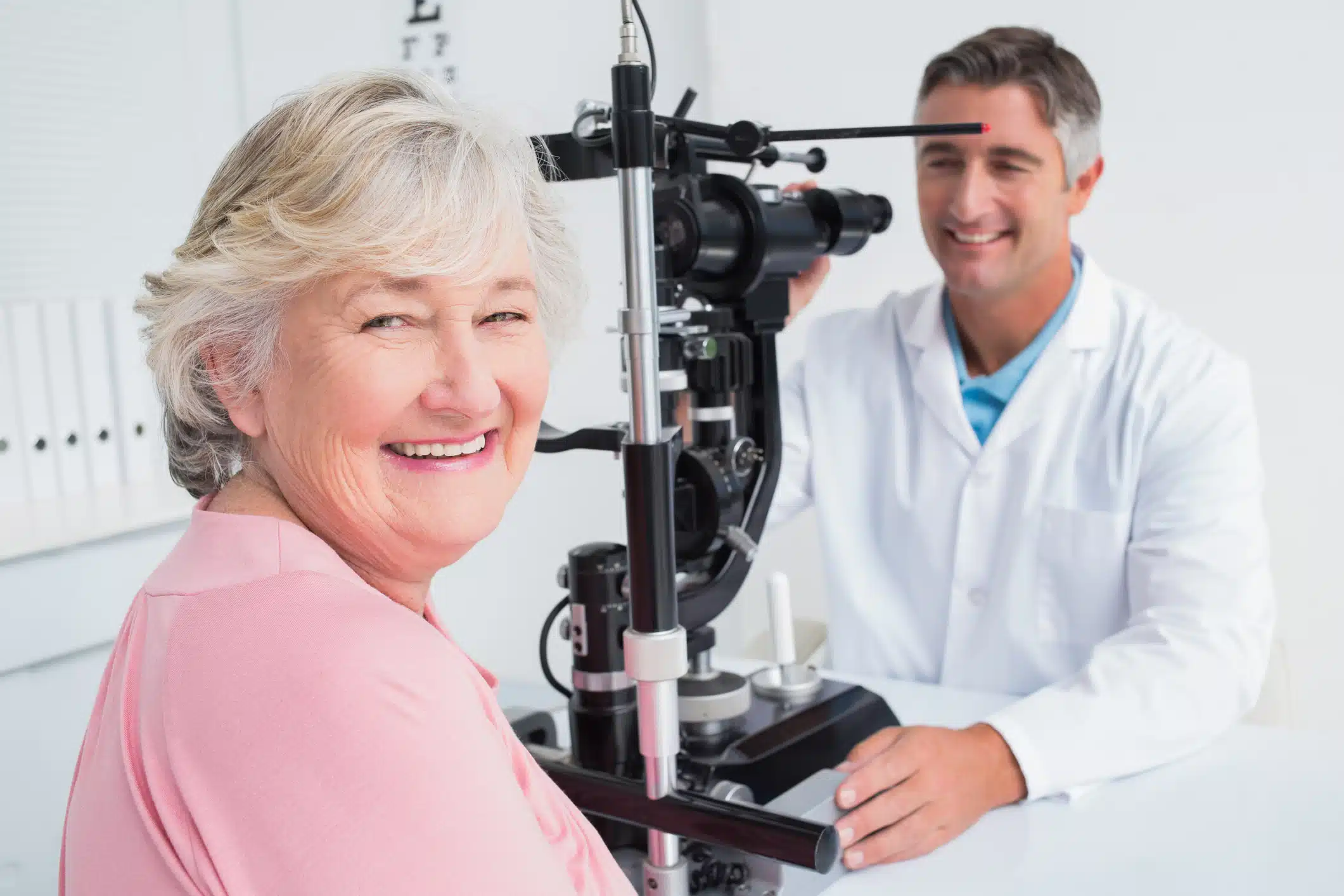Better Vision Through Healthy Habits, Smart Choices
Do you wish you could see better? You’re not alone. According to the American Foundation for the Blind, nearly 24 million American adults reported experiencing vision loss in 2015. In other words, there are a lot of people who’d like to improve their eyesight—and like you, many are looking for natural ways to see better.
Unfortunately, “natural vision correction” is a bit of a misnomer. In a 2013 study, the American Academy of Ophthalmology determined that natural vision correction programs and techniques—including muscle relaxation, eye massages, and nutritional supplements—do not help vision problems caused by age or disease. Lenses and/or corrective vision surgery are the only ways to really see better if you suffer from myopia (nearsightedness), hyperopia (farsightedness), cataracts, macular degeneration, or most other vision problems.
Still, there are a handful of behaviors and routines that can keep your eyes healthy so you can maintain the vision you have. Some of these tips may also help temporarily relieve poor vision symptoms such as eyestrain or blurriness, which actually can help you see better.
Eat an Eye-Healthy Diet
Good eye health starts with the food on your plate. Nutrients like zinc, lutein, omega-3 fatty acids, and Vitamins C and E can help keep your eyesight keen as you get older, warding off age-related vision problems like cataracts and macular degeneration. A well-balanced “eye diet” can also help you stay at a healthy weight, lowering your odds of obesity, type 2 diabetes, and other diseases that can cause vision problems.
Best Foods for Good Eye Health
Here are some powerhouse foods for healthy eyes to include in your diet:
- Fish – Cold-water fish such as salmon, tuna, and mackerel are rich in omega-3 fatty acids, which may help protect against dry eyes, macular degeneration, and cataracts. If you don’t eat fish, you can still get a good supply of omega-3 fatty acids by taking fish oil supplements or other vegetarian supplements that contain flaxseed or black currant oil.
- Eggs – Eggs are a good source of nutrients that promote eye health and function, including lutein and Vitamin A (which may also protect against dry eyes and night blindness).
- Leafy greens – Dark, leafy greens such as spinach, arugula, kale, and watercress are full of lutein and zeaxanthin, two types of carotenoids that can help prevent or stem the development of cataracts and macular degeneration. Leafy greens contain other vitamins and minerals that are good for your eyes, including iron, magnesium, calcium, and vitamins A and K.
- Legumes – Lentils, kidney beans, and black-eyed peas are good sources of bioflavonoids and zinc, which can help keep your eyes hydrated and lower the risk of developing cataracts and macular degeneration.
Quit Smoking (Or Never Start)
Smoking has long been known to cause major health problems like heart disease and cancer, but many people don’t know that smoking can also affect your vision. Here are some facts on smoking and eye disease to consider if you’re a smoker and concerned about your eye health, or if you know someone who smokes:
- People who smoke double their chance of forming cataracts compared with non-smokers.
- Smokers are three times more likely to develop age-related macular degeneration compared with people who have never smoked (female smokers over age 80 are more than five times more likely to develop AMD).
- Smokers are more likely than non-smokers to have uveitis, a serious eye disease that causes inflammation of the eye’s middle layer and can result in complete vision loss.
- Smokers are nearly twice as likely to suffer from dry eyes, which can lead to itchiness, redness, and a “foreign body” sensation.
- Smoking while pregnant increases the chance of fetal and infant eye disorders, including crossed eyes (strabismus) and underdevelopment of the optic nerve.
Quitting smoking and avoiding second-hand smoke can have a positive impact on your long-term eye health. If you’re ready to quit, talk to your doctor about living a smoke-free life.
Reduce Eye Strain
Staring at a computer or phone screen for too long causes physical discomfort known as “digital eye strain” which includes such symptoms as blurry vision, trouble focusing at a distance, dry eyes, and headaches. Many individuals suffer one or more symptoms after computer or phone screen use for longer than two hours at a time. Unfortunately, many of our daily tasks involve a computer or smartphone, so the chances of experiencing digital eye strain are quite high.
Try these tips to reduce or prevent eye strain:
- Increase the resolution of your computer monitor and adjust the contrast and brightness to make it easier for your eyes to focus on the screen.
- Turn off overhead lights or place an anti-glare cover over your computer screen (too much glare can strain your eyes and make it difficult to see objects on your monitor).
- Keep your eyes hydrated with over-the-counter or doctor-prescribed artificial tears. Avoid drops with a redness remover, as these may worsen dry eye symptoms.
- Follow the 20-20-20 rule: Look at something 20 feet away for at least 20 seconds every 20 minutes while working on a computer or watching television.

Visit Your Eye Doctor Regularly
Regular eye exams should be part of your routine if you want the best possible vision. Ophthalmologists and optometrists can find eye diseases that have no symptoms, like glaucoma, and can track the progression of other vision problems you may be having.
Aiello Eye Institute is your long-term eye health partner. From comprehensive eye examinations to leading-edge surgical and non-surgical treatments, Aiello Eye Institute can help you with a lifetime of good vision. Make an appointment today to discuss your eye health.

